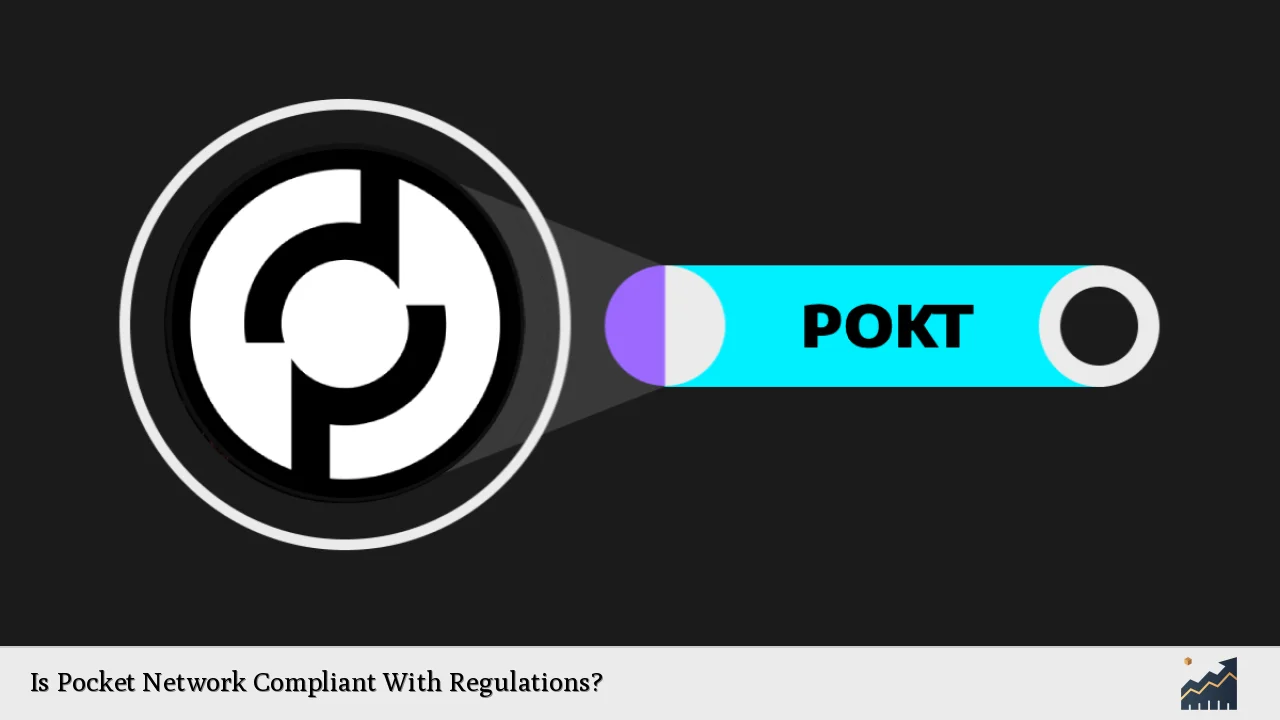Pocket Network (POKT) is a decentralized middleware protocol designed to facilitate data relay services between blockchain networks and decentralized applications (dApps). As the regulatory landscape for cryptocurrencies and blockchain technologies evolves, compliance with regulations has become a critical concern for platforms like Pocket Network. This article explores the regulatory compliance of Pocket Network, examining its operational framework, market dynamics, and the implications of regulatory requirements on its future.
| Key Concept | Description/Impact |
|---|---|
| Decentralization | Pocket Network operates on a decentralized infrastructure that mitigates risks associated with centralized service providers, enhancing reliability and security. |
| Regulatory Compliance | The network must adhere to various regulations, including data protection laws and cryptocurrency-specific legislation, to maintain operational legitimacy. |
| Tokenomics | The POKT token serves as the native currency for transactions within the network, impacting its economic model and regulatory scrutiny. |
| Governance Structure | The decentralized governance model allows community participation in decision-making, which can influence compliance strategies. |
| Market Dynamics | The growing demand for decentralized services and the evolving regulatory framework present both opportunities and challenges for Pocket Network. |
Market Analysis and Trends
The market for decentralized infrastructure is expanding rapidly as businesses and developers seek alternatives to traditional centralized services. According to recent reports, the global decentralized finance (DeFi) market is projected to grow significantly, driven by increasing adoption of blockchain technologies. Pocket Network’s unique position as a provider of decentralized remote procedure call (RPC) services positions it favorably within this trend.
- Growth of Decentralized Applications: The rise of dApps across various sectors, including finance, gaming, and supply chain management, has increased demand for reliable data relay services.
- Regulatory Environment: As governments worldwide establish frameworks for cryptocurrency regulation, platforms like Pocket Network must navigate complex legal landscapes to ensure compliance.
- Technological Advancements: Innovations in blockchain technology enhance service performance, enabling Pocket Network to offer competitive solutions in terms of speed and reliability.
Implementation Strategies
To maintain compliance with evolving regulations while scaling operations, Pocket Network employs several strategic initiatives:
- Regular Legal Audits: Conducting periodic audits to assess compliance with local and international laws related to data protection and cryptocurrency operations.
- Community Engagement: Involving stakeholders in governance decisions ensures that regulatory considerations are integrated into the network’s operational strategies.
- Adaptation to Regulatory Changes: Staying informed about changes in legislation allows Pocket Network to adjust its policies proactively.
- Transparency Initiatives: Enhancing transparency regarding data usage and governance processes helps build trust with users and regulators alike.
Risk Considerations
While Pocket Network has established a robust operational framework, several risks could impact its regulatory compliance:
- Legal Risks: The potential for regulatory actions from bodies like the SEC poses a significant threat. Non-compliance could result in fines or operational restrictions.
- Market Volatility: Fluctuations in cryptocurrency prices can affect the economic stability of the POKT token, influencing investor confidence and regulatory perceptions.
- Data Protection Compliance: Adhering to data protection regulations such as GDPR is crucial. Non-compliance can lead to substantial financial penalties.
Regulatory Aspects
Pocket Network’s approach to regulation is multifaceted, focusing on both proactive compliance measures and reactive strategies in response to regulatory changes:
- Decentralized Governance: The network’s governance model allows POKT token holders to participate in decision-making processes that impact compliance strategies. This decentralization can mitigate risks associated with centralized control but may complicate swift responses to regulatory changes.
- Compliance Frameworks: The implementation of comprehensive compliance frameworks ensures adherence to relevant laws. This includes monitoring developments in cryptocurrency regulation across jurisdictions where the network operates.
- Engagement with Regulatory Bodies: Establishing communication channels with regulators can facilitate better understanding and cooperation regarding compliance issues.
Future Outlook
As Pocket Network continues to expand its infrastructure and user base, its ability to navigate regulatory challenges will be critical for sustained growth. The following factors will shape its future:
- Evolving Regulations: Ongoing changes in cryptocurrency regulations will necessitate continuous adaptation by Pocket Network. Staying ahead of these changes will be essential for maintaining operational legitimacy.
- Market Positioning: By leveraging its decentralized infrastructure and commitment to compliance, Pocket Network can differentiate itself from competitors that rely on centralized systems.
- Technological Innovation: Continued advancements in blockchain technology will enhance the efficiency and scalability of Pocket Network’s services, potentially attracting more users despite regulatory hurdles.
Frequently Asked Questions About Is Pocket Network Compliant With Regulations?
- What is Pocket Network?
Pocket Network is a decentralized middleware protocol that provides RPC services between blockchain networks and dApps. - How does regulatory compliance affect Pocket Network?
Compliance impacts operational legitimacy, user trust, and potential legal liabilities. It is crucial for sustaining growth in a regulated environment. - What risks does Pocket Network face regarding regulations?
Legal risks from non-compliance with cryptocurrency regulations and data protection laws pose significant threats. - How does Pocket Network ensure compliance?
The network employs regular audits, community engagement in governance decisions, and proactive adaptation to regulatory changes. - What role does decentralization play in compliance?
The decentralized governance model allows community participation but may complicate swift responses to regulatory changes. - How does market volatility impact Pocket Network’s compliance?
Fluctuations in cryptocurrency prices can affect investor confidence and regulatory perceptions of the network. - What future challenges might Pocket Network face?
Evolving regulations will require continuous adaptation; failure to comply could hinder growth prospects. - Is there an ongoing dialogue with regulators?
Establishing communication channels with regulators is essential for facilitating understanding and cooperation regarding compliance issues.
In conclusion, while Pocket Network demonstrates a strong commitment to decentralization and innovation within the blockchain space, its ability to remain compliant with evolving regulations will be pivotal for its long-term success. By proactively addressing legal challenges and engaging with stakeholders, Pocket Network can navigate the complexities of the regulatory landscape effectively.

